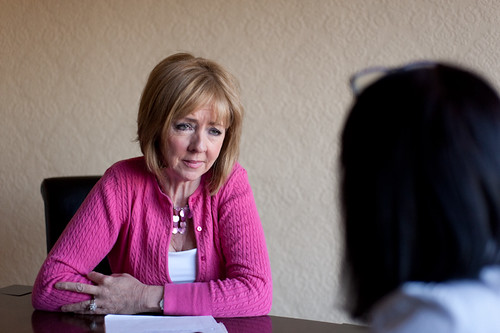Increasing enrollments in private and public elementary, middle, and high schools are expected to expand the number of school counselors in the United States by 12 percent from 2012 to 2022. If you’re considering a career in this growing field, it’s important to understand your future responsibilities.
Counsel Students

Image via Flickr by Joe Houghton
Counseling students is, of course, one of the school counselor’s primary responsibilities. Research suggests that counselors spend at least 80 percent of their time directly or indirectly serving students, and the majority of this time is made up of direct counseling.
School counselors use the information they’ve learned through formal education, such as a Master of Arts in Counseling – School Counseling, to provide one-on-one or group counseling to school students. This counseling may help students overcome behavioral problems, improve their time management and organizational skills, establish academic goals, resolve interpersonal problems with other students, or work through personal problems. School counselors working in high schools may also help students set career goals, ensure their classes will help them achieve these, and identify potential financial aid and apprenticeship opportunities.
Liaise with Teachers and Parents
School counselors don’t work with students alone. In some cases, it may be necessary to involve a student’s teachers or parents in the counseling process. For example, counselors may liaise with teachers to develop strategies for assisting a student with learning difficulties. The counselor may also meet with the child’s parents to discuss ways that they can help facilitate learning in the home and maximize learning outcomes. School counselors may also liaise with teachers and parents in cases concerning students with mental health issues or those with severe behavioral issues.
Refer Students to External Agencies
In some cases, the problems that school counselors see are too big to deal with at the school level. Under these circumstances, a school counselor may refer students to external agencies that are equipped to deal with the student’s concerns. For example, a school counselor may recommend to parents that their child undergo psychological testing. Under child welfare laws, a school counselor must also report incidents of child abuse or neglect to the relevant authorities.
Participate in Student Welfare and Learning Support Committees
School counselors are an integral part of a school’s student welfare and learning support committees. School counselors discuss students of concern with other committee members and collect and share information related to student welfare and learning support matters. As part of these committees, school counselors also develop, coordinate, and assess initiatives that promote student welfare and improve learning standards.
Evaluate and Improve the Counseling Program
School counselors should strive to make their school’s counseling program the best that it can be. It’s a school counselor’s responsibility to cast a critical eye over existing counseling practices and identify areas that could be improved. Counselors should then take their recommendations up with the school board or principal and campaign for changes that will benefit all staff members, students, and their family members.
Working as a school counselor can be challenging, but these professionals insist that such responsibilities come with great rewards.
Sources
U.S. Bureau of Labor Statistics, School and Career Counselors
